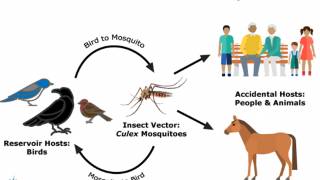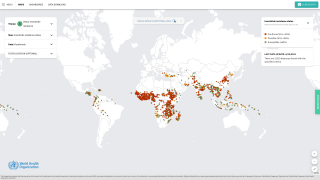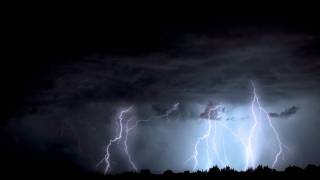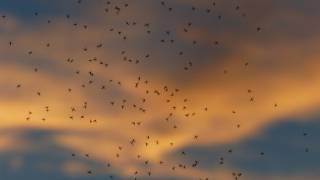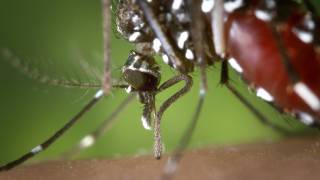West Nile Virus Has Returned Across the USA

It's that time of year for a deadly infectious disease to reappear throughout the USA.
According to recent reports, the West Nile Virus has been identified in several states during June 2018.
This rash of news alerts indicates that the West Nile Virus may once again impact the health of thousands of Americans.
"While much of the attention on emerging infections focuses on diseases such as Zika or Ebola, in many US states, WNV has emerged as by far and away the most important emerging pathogen," said Peter Jay Hotez MD, Ph.D., Dean for the National School of Tropical Medicine, Baylor College of Medicine.
During 2017, 47 states and the District of Columbia reported 2,002 cases of human WNV disease, with 67 percent classified as neuroinvasive disease, according to the Centers for Disease Control and Prevention (CDC).
California (509) and Texas (133) were the unfortunate state leaders of reported WNV cases during 2017.
West Nile Virus (WNV) is transmitted to humans through the bite of a Culex pipiens mosquito that encountered the disease when biting an infected bird, according to the CDC.
Which means, birds are the primary source of West Nile Virus.
Four out of five people infected with West Nile Virus will not show any symptoms, which include fever, nausea, headache and muscle aches, according to the CDC.
In rare cases, severe illness including meningitis or encephalitis, or even death, can occur.
Moreover, a recent study found about 50 percent of the people who survive encephalitis are left with permanent neurological problems, such as memory loss.
"Increasing evidence is revealing a hidden burden of long-term neurologic and renal effects, which are truly devastating for some families," said Dr. Hotez.
Recent WNV reports include, but are not limited to, the following states/cities:
- North Dakota: The North Dakota Department of Health (NDDoH ) confirmed the first human case of WNV disease in 2018. The individual resides in Ramsey County and was not hospitalized for their illnesses. Additionally, a pool of mosquitos has tested positive for WNV in Grand Forks. In 2017, the NDDoH received reports that 62 people had WNV. Over 35% of those cases resulted in hospitalizations, including two deaths.
- Los Angeles, CA: The Los Angeles County Department of Public Health has identified the first case of human WNV infection in Los Angeles County for the 2018 season. Public Health continues to report an average of 221 cases per year. Over three-quarters of reported cases have had severe disease and approximately 7% of patients with severe WNV have died from complications.
- Santa Clara County, CA: The Santa Clara County Vector Control District (SCC VCD) has confirmed that adult mosquitoes collected from an area including portions of the 94085, 94086, 95051, and a small portion of 94087 ZIP code areas of the cities of Sunnyvale and Santa Clara have tested positive for WNV.
- Michigan: The Marquette County Health Department says the WNV has been found in a crow this month.
- Houston, TX: Two mosquito samples have tested positive for the WNV in Montgomery County. These are the first of the season to test positive.
- South Dakota: A Todd County blood donor is the state's first human WNV detection of the season.
- Chicago, IL: Mosquitoes to test positive for WNV were found in Glenview and Morton Grove. In 2017, the Illinois Department of Public Health reported 63 counties reported WNV positive results in mosquito batches, birds or humans. And, 90 human cases, which included eight deaths.
- New Orleans: The City of New Orleans confirmed WNV was found in at least two mosquitoes collected last week. St. John, Tangipahoa, and St. Tammany parishes have also had positive tests.
- Washington: Grant County has reported 1 mosquito case during 2018.
Separately, as of June 2018, the World Health Organization (WHO) has not reported any human or equine cases of West Nile fever cases by EU Member States and neighboring countries during 2018.
According to the CDC, the search for vaccines against the WNV is one of the major challenges of global epidemiology.
As of yet, there are no vaccines to protect people from the West Nile Virus.
Our Trust Standards: Medical Advisory Committee
- West Nile Virus
- Astrocytes decrease adult neurogenesis during virus-induced memory dysfunction via IL-1
- West Nile fever in Europe in 2018 - human cases compared to the previous season; updated 14 June
- West Nile Virus Reported in Chicago, But Don’t Blame Mosquitoes
- West Nile Virus Connected To Memory Loss, Again


